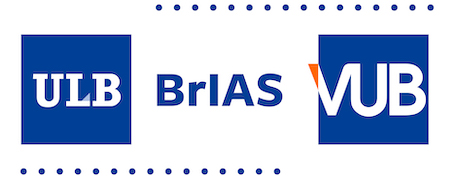1. Prof. Stephen Bailey, Professor, Elon University, USA
Title: "Impact of a Carbohydrate Mouth Rinse on Corticomotor Excitability after Mental Fatigue"
Mental Fatigue has been associated with reduced physical performance and may impact the ability of someone to use exoskeletons or robotics for a long period of time. Rinsing your mouth with a carbohydrate drink has been shown to be effective at improving the brain’s ability to initiate and maintain function of our motor systems. The purpose of this study is to determine if a carbohydrate mouth rinse can positively impact motor function after mental fatigue. Nine subjects (6 females, 3 males) completed 2 experimental sessions after they rinsed their mouths with a typical carbohydrate drink or a placebo. Function of a muscle in the hand was determined before and after subjects were mentally fatigued. Mental fatigue was created by having subjects complete several trials of the Stroop Color Word Test (SCWT). Mental fatigue was increased under both conditions, but no differences were seen between the groups. Reaction time during the SCWT was faster when subjects used the carbohydrate mouth rinse, but correct response rate was not different between the groups. Motor function was improved (34%) after the mental fatigue task when subjects used the carbohydrate mouth rinse and reduced (-29%) when subjects used the placebo. The carbohydrate mouth rinse was successful at maintaining motor function and improved cognitive function after mental fatigue. These results suggest that a carbohydrate mouth rinse may be a valuable tool at combating the negative consequences of mental fatigue.
2. Franziska Kirstein, BlueOcean Robotics, Denmark
Title: "Designing, developing and manufacturing healthcare service robots with sustainability in mind
Designing, developing and commercializing robots is a challenging business. It’s about tackling countless technical obstacles, satisfying end-user and customer needs while coming up with a solution that actually can generate revenue. Blue Ocean Robotics creates and commercializes robots for humans, to change the way people work to be more meaningful, rewarding and healthy. This talk will delve into the early design phases of the companies’ healthcare service robots UV Disinfection Robot and Patient-Transfer-Rehabilitation Robot that have been developed in Public-Private-Partnerships with hospitals: from identifying user needs, over conducting field studies, analyzing user requirements to coming up with a concept design and finally introducing the prototype into the hospital. Specifically, it will focus on the aspects that will support a long-term, sustainable implementation of the robot.
After acknowledging the intricate nature of robot development, the talk will shortly dive into yet another challenge: the sustainable manufacturing and life cycle management of robots. Robots can increase quality of life, but their manufacturing itself can potentially outbalance their positive impact. The materials and designs used make it difficult to recycle the parts, especially electronics. Toxic materials or rare-earth metals impose an additional environmental threat. The demand for robots is increasing and it’s definitely a challenge for robotic providers to balance social, environmental and economic sustainability. I will share a few first efforts on how Blue Ocean Robotics is working towards a more sustainable manufacturing of robots and the challenges faced during this process.
3. Kris Verdonck, BrIAS Resident artist, A Two Dogs Company
Title: “listen to the bloody machine/The garden of the future”
In the work of Kris Verdonck Objects (dead matter) and Subject (people, living matter) are constantly intertwined. Objects are often infused with “performative characteristics”, whilst people have “objective” characteristics. Objects carry out dramatic actions, and actors are put on display in the museum.
During his fellowship he will work on “The Garden of the Future”, a project in collaboration with Institute of Natural Sciences, A two Dogs Company, and OHME/BrIAS/FARI to create an innovative project on an artistic, technical and educational level. It would bring together knowledge and experience from the arts, robotics and biology.
Ecosystems
The survival of plant and animal species (and therefore humans) depends on the various relationships between them. The most well-known example probably is the importance of bees for the pollination of flowers and plants.
In the field of "biomimicry," the robotic and AI-controlled imitation of these species is being explored to better understand these relationships and to develop alternatives for when certain species - and thus interactions - become extinct. The Garden of the Future subscribes to this quest, aiming both to develop prototypes for machines that can take over functions in the ecosystem and to actually implement them in the garden of the Museum of Natural Science in Brussels. The machines thus developed will fill in an ecological relationship (e.g. pollination) as well as poetically give form to interactions between plants, animals and environments. In addition to artistic and technical development, this project will result in an expo that can raise public awareness of ecological dynamics, climate change and the role of technology.
For the teams link, or in-person participation, registration is required. Coffee and tea will be served.
This Seminar will also be livestreamed on our Youtube channel @BrIAStalks
Location:
VUB Campus Etterbeek
AI Experience Centre (AIXC)
Pleinlaan 9,
